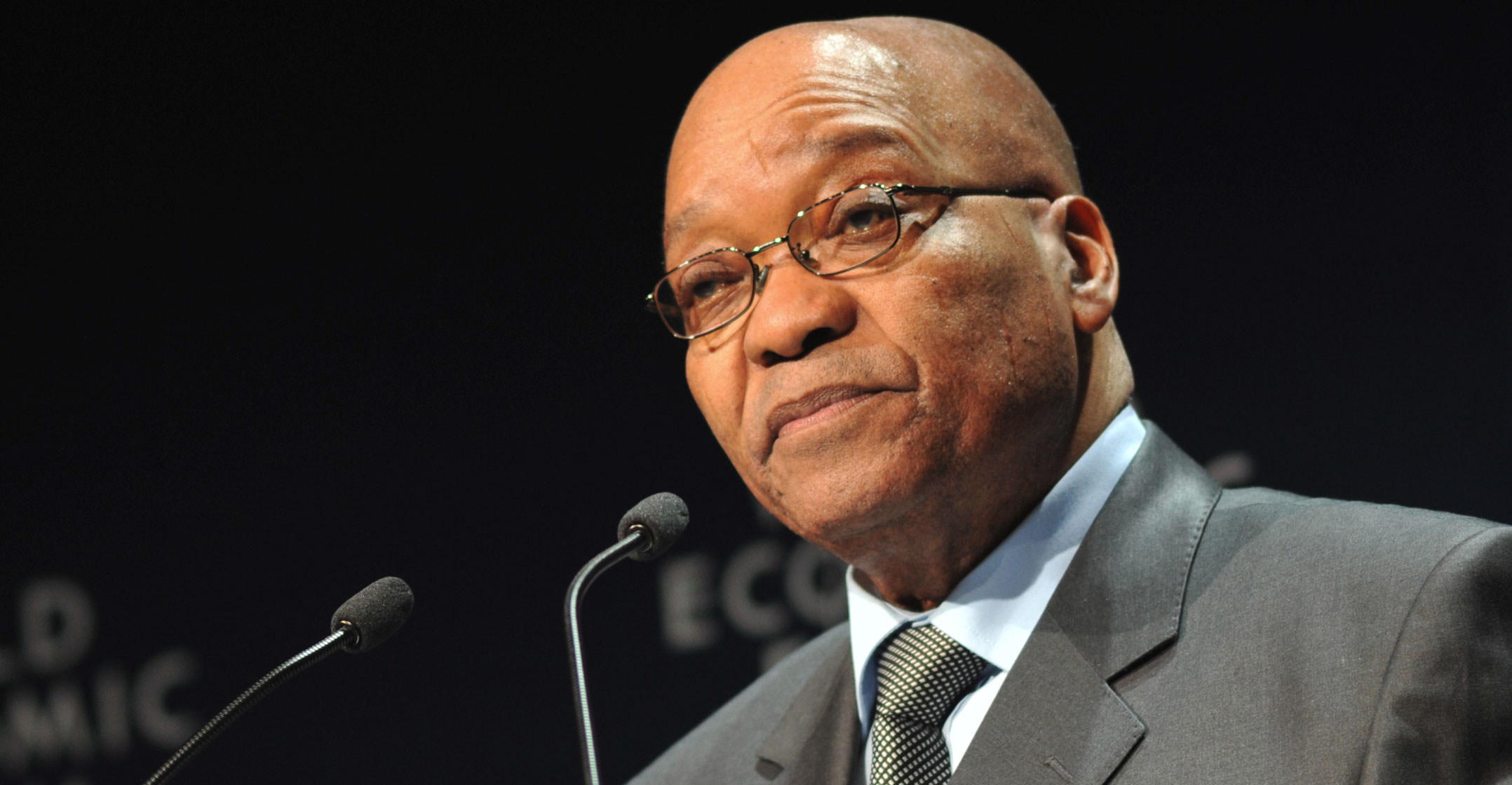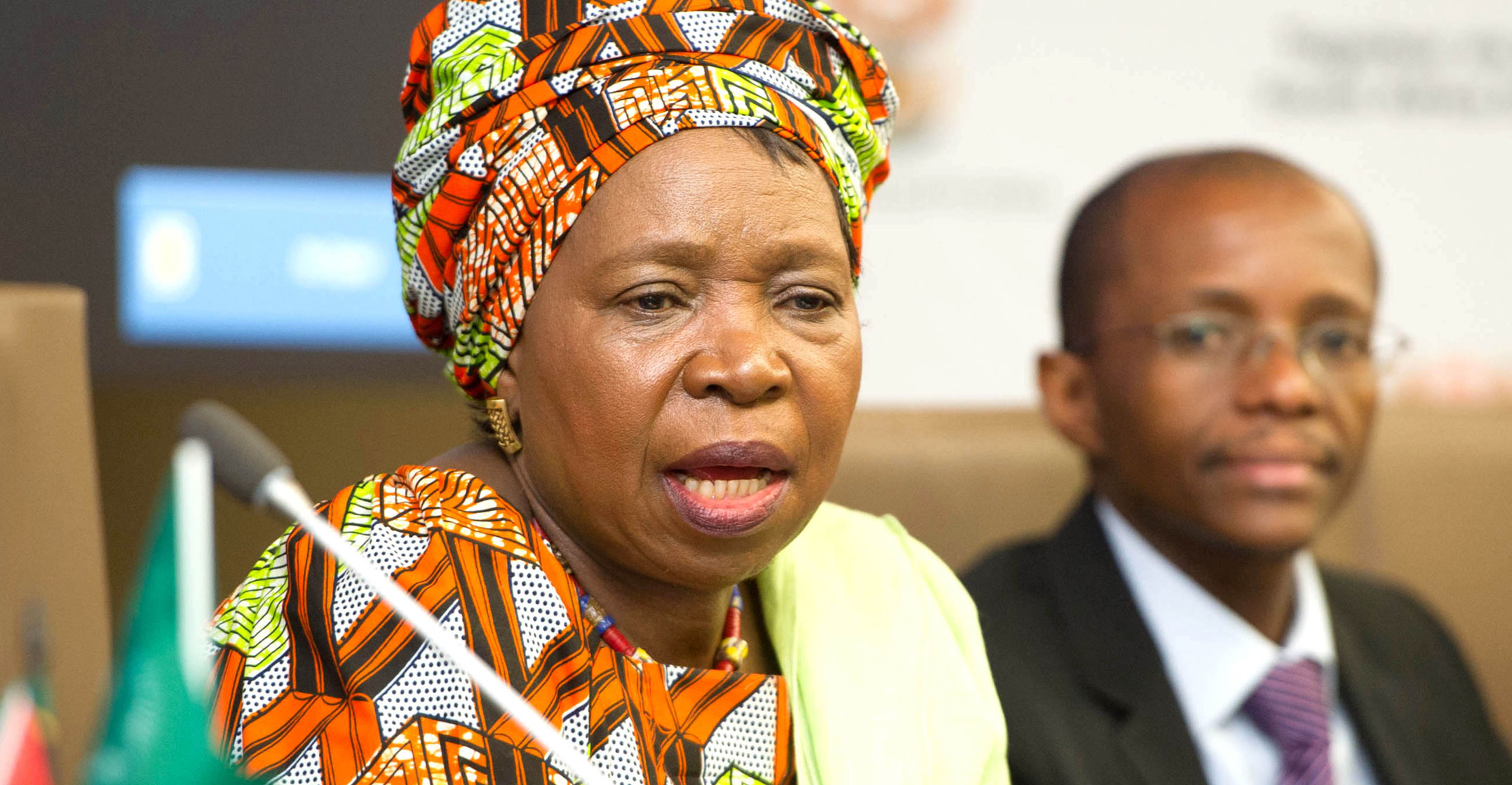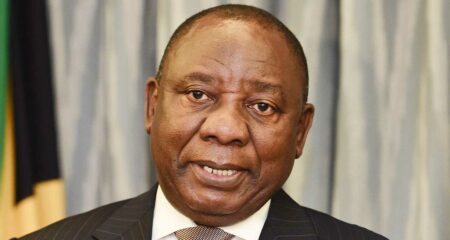
[dropcap]I[/dropcap]nfighting and scandal are threatening the stranglehold the ANC has held on power since the end of apartheid.
The parlous state of Africa’s oldest political movement, once revered for its role in ending white-minority rule, was laid bare in a report presented by its secretary-general, Gwede Mantashe, at a party policy conference that’s being held in Johannesburg. Officials intent on securing positions and state resources have alienated voters and tarred the ANC as a corrupt organisation, it admits.
While Mantashe sidestepped a question as to whether the ANC may lose the outright majority it’s held since 1994 in elections due to be held in two years, that risk has been raised by other senior officials and party veterans.
In municipal elections last year, its share of the national vote plummeted to 54%, from 62% in 2014, and it lost control of three of the biggest cities. President Jacob Zuma, 75, who’s been implicated in a series of scandals since taking office in 2009, has been a lightening rod for the public’s disaffection.
“The problems that cost the ANC votes in the last elections continue to persist,” said Susan Booysen, a politics professor at the University of the Witwatersrand’s School of Governance. “It’s almost as if Zuma is causing the ANC to implode.”
The ANC’s labour union and communist allies, church and civil rights groups and some of the party’s most revered leaders have called for Zuma to resign or be fired. While the president acknowledged the party’s challenges and called for unity in his opening address to the policy conference on 30 June, he took no responsibility for its decline and instead lashed out at his detractors.
Escape censure
Zuma has escaped censure because his allies dominate the ANC leadership, even after his decision to fire Pravin Gordhan as finance minister in 31 March prompted two ratings companies to downgrade the nation’s sovereign credit rating to junk status and drew criticism of three of the party’s top officials.
“The moment you say what is wrong is that you have got bad leadership in the ANC, they say that’s not the right thing — it’s white monopoly capital, it’s ill-discipline,” said Mpumelelo Mkhabela, a political analyst at the University of Pretoria’s Centre of Governance Innovation.
Zuma’s weathered heavy blows to his reputation. South Africa’s top court ruled that he violated his oath of office by refusing to repay taxpayer money spent on his private home and thousand of e-mails reported by local media implicate him in facilitating the looting of billions of rand from state coffers by his son’s business partners, the Gupta family. Both he and the Guptas deny wrongdoing.
His public approval rating has hit an all-time low, with almost two-thirds of 3 471 eligible South African voters surveyed by research company Ipsos from 21 April to 22 May saying they wanted him to quit.
The ANC’s main challengers in the 2019 election are the Democratic Alliance and the Economic Freedom Fighters, which despite having vastly different policy positions reached a pact to run Johannesburg and Pretoria last year.
Should the ANC lose its overall majority nationally, it would probably turn to smaller parties that it’s worked with at municipal level to retain power.
“I don’t think there has been a time in the history of the governing party that its leaders have spoken openly about losing an election,” said Mkhabela. “Now they talk about it all the time, yet they duck around the real problem. This thing of self-correcting is a myth.”

The ANC’s saving grace may be that Zuma is due to step down as its leader in December and as president in 2019. Sithembile Mbete, a politics lecturer at the University of Pretoria, is among those who considers it unlikely that the ANC’s share of the vote will slip below the 50% mark in the next election.
Leadership choice
“I don’t think that it is as stark a prospect for 2019 as some of the opposition parties like to make it,” she said in an interview. “It will also depend on who gets voted in as president of the party.”
The leadership contest is fuelling divisions within the ANC.
Zuma favours his ex-wife Nkosazana Dlamini-Zuma, the 68-year-old former chairwoman of the African Union Commission, who has the backing of the party’s women’s league and parts of the youth wing and echoes the president’s call for “radical economic transformation” to place more wealth in the hands of the black majority.
Her main rival, Cyril Ramaphosa, 64, enjoys the backing of key labour unions and the communists and has emphasised inclusive growth and a clamp-down on corruption.
Provincial officials are in talks to come up with consensus candidates to try and avoid a no-holds-barred fight for positions, according to Phumulo Masualle, the ANC’s Eastern Cape chairman.
“We need unity in the movement,” he said in an interview. “This tearing each other apart has got to stop.” — Reported by Mike Cohen, Amogelang Mbatha and Sam Mkokeli, (c) 2017 Bloomberg LP




